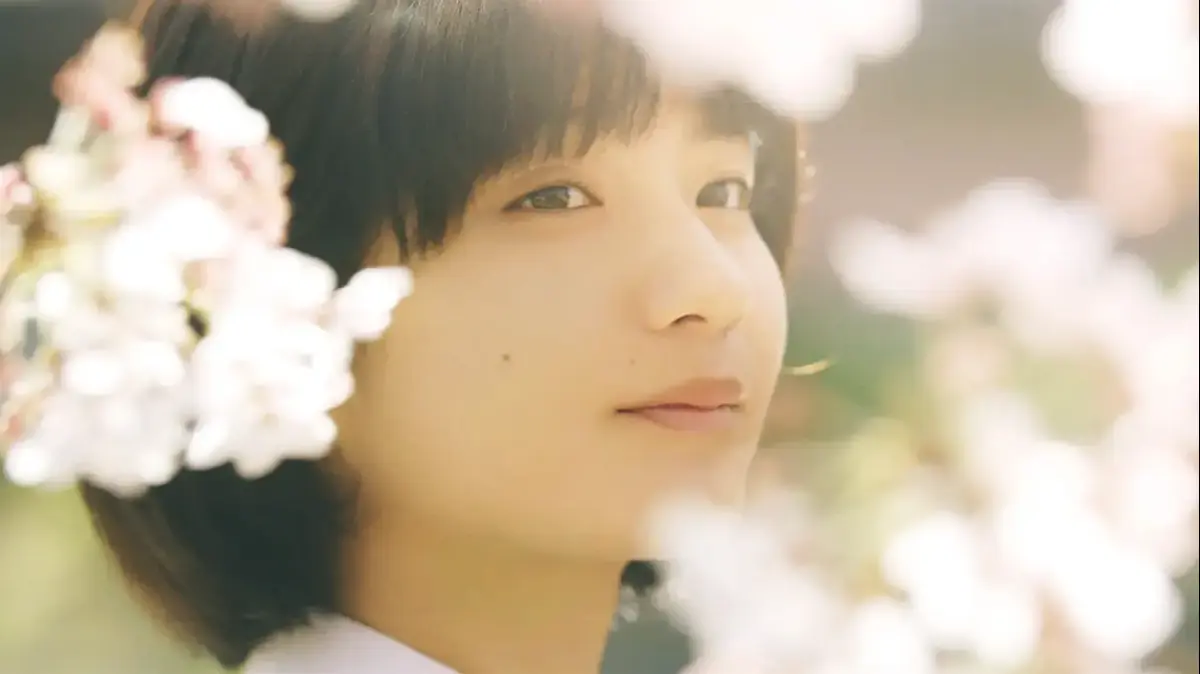This film proves: the attitude of cinema towards motherhood is undergoing a revolution
"True Mothers", a film by the wonderful Japanese director Naomi Kwasa, asks what makes a mother "real" and does so in a deep, beautiful and sensitive way.
It is a Japanese film in its rhythm, beauty and subtleties, but it also has a universal dimension, and if it were not for the corona it would have filled halls here
Avner Shavit
14/01/2022
Friday, 14 January 2022, 00:12
Share on Facebook
Share on WhatsApp
Share on Twitter
Share on Email
Share on general
Comments
Comments
Excerpt from the movie "True Mothers" (Lev Cinema)
Star rating for movies - 3.5 stars (Photo: Image Processing,.)
Over the years, the film world has shyed away from serious engagement with the mother figure. Quite a few films centered on mothers and their relationships with their sons or daughters, but the direction was usually campy or psychotic, such as in cult films like "Psycho" or "Dear Mother."
In the last year, however, we have seen a change of direction: films that deal with mothers, and at least try to do so in a sensitive, balanced and complex way - whether they succeed or not, is another question, but there is no doubt that the approach is different from the past.
These include, for example, "The Dark Daughter" which was released here about a month ago and "Kadima Kadima" and "Parallel Mothers" by Almodóvar, which are due out later this year. They are all valued films, they all deal with mothers' characters, and sometimes more than one mother, and they are all intentionally humorless, certainly not black humor. They seek to examine in depth and seriously questions such as what it means to be a mother and what it means to be a "good mother."
Now, "Real Mothers" by Japanese director Naomi Kwasa, who came up here last weekend, also joins the list, and as its name implies presents a similar but different question - what makes someone a "real mother".
Is it a matter of biology, or is it of psychology?
More on Walla!
One Hundred Movies to Watch on Netflix: The Complete Guide
To the full article
Change of direction.
From "True Mothers" (Photo: Lev Cinema)
On paper, the starting point is reminiscent of another Japanese film screened in the country about a decade ago, "Family Story." A bit like him, the script describes how a couple who adopted a child gets a surprise visit from their biological mother. But this event is neither a spoiler nor the center of the plot; He's just one turning point in a drama full of twists and turns.
The film has many virtues. One is that Kwasa alternates between the perspectives of the characters. She never looks at them from a distance, but clings to their point of view, thus eliminating the distance and contrast between one character and another and between them and the audience. All this makes it possible to understand each of them, to identify with her and to feel empathy for her. Anyone who wants to understand how to create a drama full of compassion and humanity, who will watch "True Mothers".
To understand the life circumstances of her protagonists, Kwasa jumps between perspectives and times.
Flashbacks are one of the most problematic cinematic tools available.
Not infrequently, they are heavy and awkward, creating the feeling that we are watching two different movies.
Not in this case: the director combines what was and what is now in an elegant and balanced way, which eliminates the hierarchies between time periods.
Kawasa stands as one of the oldest, most prolific and esteemed directors in her homeland.
She was chosen to direct the official film of the Tokyo 2020 Olympics, and "True Mothers" was chosen to represent Japan at the previous Oscars, though did not eventually make it to the final five nominees.
She is also valued in the international arena, and almost every new work of hers participates in the official competition of the Cannes Film Festival.
This film was also supposed to have its premiere on the Riviera, but the festival was canceled at the time because of the Corona.
A different rhythm.
From "True Mothers" (Photo: Lev Cinema)
As in her previous films, for example "Ann", here too Kwasa illustrates the source of appreciation towards her. Her mastery of cinematic means of expression is absolute. The film brings out the best both from the landscapes of Japan and the different seasons, and from the faces of the actresses. Ajo Makita stands out, only 19 years old and already one of the most prominent names in Japanese cinema in recent years - she also starred in the "My Family" winner of the Golden Palm in 2018.
Japanese cinema, as is well known, has its own rhythm, different from that of Hollywood. In "Mr. Yusuke's Leadership," the most notable Japanese film of the past year. Credits arrive only after 45 minutes. Here, a similar period of time passes until the significant plot twist arrives, something that in an American film would have happened after a quarter of an hour at most, if not already in the trailer. Still, “True Mothers” is neither slow nor boring for a moment, and is educated most of the time to maintain a high level of audience engagement.
On the one hand, there are qualities and subtleties specific to Japan - the rhythm, the style, the landscapes and on the other hand, quite a bit of criticism of the local society.
At the beginning of the film, for example, the protagonist is asked to give up her job and commit to being a full-time mother in order to be considered eligible for adoption.
The mother who delivers her son is also required to be a victim.
In its gentle way, Kwasa illuminates this in a critical light, as do other social norms in the country.
Real beauty.
From "True Mothers" (Photo: Lev Cinema)
On the other hand, the film also has a universal dimension, and one can easily imagine how it is processed in other languages.
It raises moral and psychological questions that are relevant everywhere, including to Israel.
In a more normal reality, had it not been for the corona, it is also easy to imagine what it would have been like to fill halls here.
Either way, whatever his box office fate will be, the cinematic upheaval when it comes to representing mothers will probably no longer be stopped.
culture
Theater
Movie review
Tags
Japan
adoption








